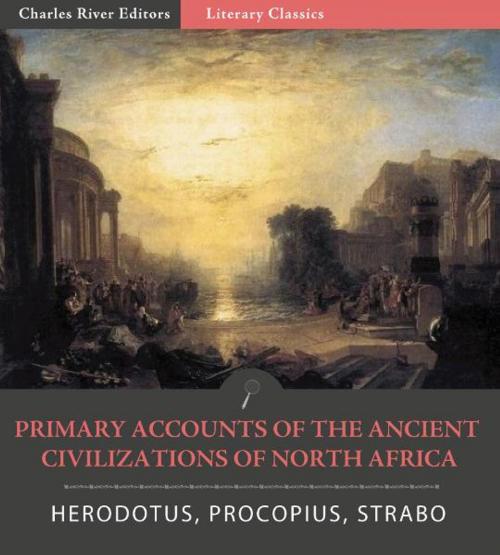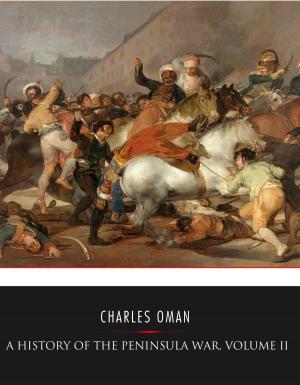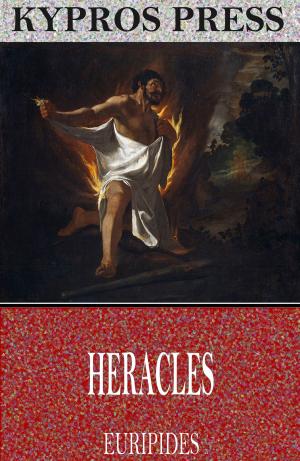Primary Accounts of the Ancient Civilizations of North Africa
Nonfiction, History, Ancient History, Egypt, Africa| Author: | Herodotus, Procopius & Strabo | ISBN: | 9781619824058 |
| Publisher: | Charles River Editors | Publication: | February 17, 2012 |
| Imprint: | Language: | English |
| Author: | Herodotus, Procopius & Strabo |
| ISBN: | 9781619824058 |
| Publisher: | Charles River Editors |
| Publication: | February 17, 2012 |
| Imprint: | |
| Language: | English |
Primary Accounts of the Ancient Civilizations of North Africa is a collection of accounts about African civilizations written by some of the oldest and most prominent historians of antiquity, including Herodotus, also known as the Father of History, who lived in the 5th century B.C. (c.484 BC c.425 BC) and was the first historian known to collect his materials systematically, test their accuracy to a certain extent and arrange them in a well-constructed and vivid narrative. The collection also includes an account written by Strabo, a Greek historian, geographer and philosopher during the first century B.C. Though he is lesser known than Herodotus, Strabo traveled throughout the Mediterranean and Near East, and around 25 B.C., he sailed up the Nile until reaching Philae. Procopius of Caesarea (Latin: Procopius Caesarensis, Greek: Προκόπιος Καισαρεύς; c. AD 500 c. AD 565) was a prominent Byzantine scholar from Palestine. Accompanying the general Belisarius in the wars of the Emperor Justinian I, he became the principal historian of the 6th century, writing the Wars of Justinian, the Buildings of Justinian and the celebrated Secret History. He is commonly held to be the last major historian of the ancient world. The authors accounts of African civilizations reflect the prominence of these civilizations in trade and power in the ancient world. For example, the Kingdom of Axum was a naval and trading power that ruled much of present day Ethiopia around the 4th century B.C. The kingdom was also arbitrarily identified as Abyssinia, Ethiopia, and India in medieval writings. Around the same time, Meroë was the base of a flourishing kingdom whose wealth was due to a strong iron industry, and international trade involving India and China. So much metalworking went on in Meroë, through the working of bloomeries and possibly blast furnaces, that it has even been called "the Birmingham of Africa" because of its vast production and trade of iron to the rest of Africa, and other international trade partners.
Primary Accounts of the Ancient Civilizations of North Africa is a collection of accounts about African civilizations written by some of the oldest and most prominent historians of antiquity, including Herodotus, also known as the Father of History, who lived in the 5th century B.C. (c.484 BC c.425 BC) and was the first historian known to collect his materials systematically, test their accuracy to a certain extent and arrange them in a well-constructed and vivid narrative. The collection also includes an account written by Strabo, a Greek historian, geographer and philosopher during the first century B.C. Though he is lesser known than Herodotus, Strabo traveled throughout the Mediterranean and Near East, and around 25 B.C., he sailed up the Nile until reaching Philae. Procopius of Caesarea (Latin: Procopius Caesarensis, Greek: Προκόπιος Καισαρεύς; c. AD 500 c. AD 565) was a prominent Byzantine scholar from Palestine. Accompanying the general Belisarius in the wars of the Emperor Justinian I, he became the principal historian of the 6th century, writing the Wars of Justinian, the Buildings of Justinian and the celebrated Secret History. He is commonly held to be the last major historian of the ancient world. The authors accounts of African civilizations reflect the prominence of these civilizations in trade and power in the ancient world. For example, the Kingdom of Axum was a naval and trading power that ruled much of present day Ethiopia around the 4th century B.C. The kingdom was also arbitrarily identified as Abyssinia, Ethiopia, and India in medieval writings. Around the same time, Meroë was the base of a flourishing kingdom whose wealth was due to a strong iron industry, and international trade involving India and China. So much metalworking went on in Meroë, through the working of bloomeries and possibly blast furnaces, that it has even been called "the Birmingham of Africa" because of its vast production and trade of iron to the rest of Africa, and other international trade partners.















